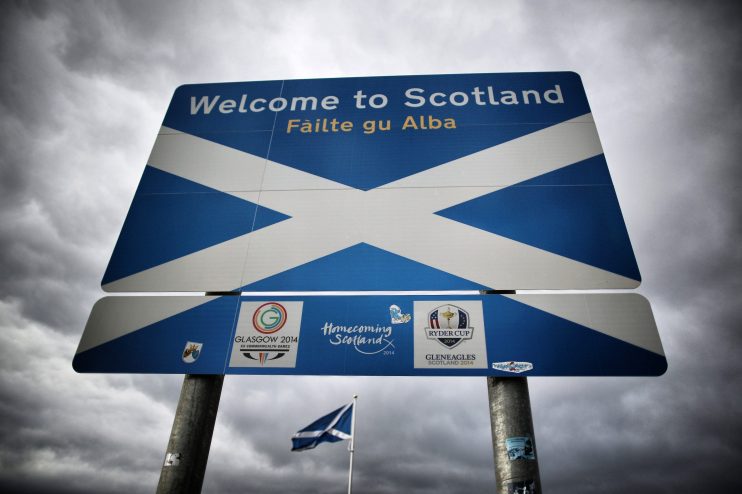Time for the UK to recognise the prospect of an independent Scotland

The debate on Scotland’s future is changing.
Opinion polls have begun showing majority support for independence. The two most recent polls have put the “Yes” vote at 54 per cent, nearly a full inversion of the 2014 referendum result.
Brexit has been the main driver of this shift. The Scottish electorate consistently rejected leaving the EU, while the process of Brexit since 2016 has eroded its devolved political settlement. More fundamentally, it has given rise to a growing sense that the UK is headed in the wrong direction.
The Scottish government’s response to the coronavirus pandemic, very visibly led by Nicola Sturgeon, has also won new support for independence. That 54 per cent may well grow in the months ahead, not least when the Brexit transition expires and we move into the undefined EU-UK future relationship.
A new referendum will be inevitable if pro-independence parties win a majority in next May’s Scottish Parliament election (which polls suggest they will). These trends mean that a vote in favour of Scottish independence within the next two years is not just possible, but likely.
Both sides would therefore do well to consider what a Scottish state would look like.
The independence debate is not about flag waving, marches or bagpipes. It’s a serious discussion on whether Scotland would be better off with the full powers of the state. People are debating the chances of fostering a more sustainable economic recovery, achieving better social outcomes, and creating a kinder welfare state if Scotland managed its own affairs.
Europe is also a major part of the conversation. Scotland has a definitive pro-EU consensus, which is not going away. Scottish politics is comfortable with European integration. Were Scotland to become independent, it would undoubtedly seek to join the EU.
Here, the refrains about the Spanish veto, the budget deficit and the need to join the euro should be put to rest. As an advanced democracy and free market economy, previously part of the European club for nearly five decades, Scotland would be well qualified for EU membership. While it would follow the normal accession process, its timetable to joining would be much faster than other countries.
We should be in no doubt that Scotland would have strong potential to develop into a successful independent state and EU member. Where set up to maximise its opportunities as an agile European small state, Scotland could take its place alongside peers like the Republic of Ireland, Denmark and Finland. The only question is whether the Scottish public will choose that option.
An independent Scotland would chart a different political course to the residual UK. Yet Scottish independence would not somehow be a threat to the rest of Britain, nor inherently negative. Independence would result in political autonomy, not cultural rupture. Scotland and the remainder of the UK would continue to share deep economic and social links.
It is true that the landscape since the last referendum has altered. Brexit raises challenges which did not exist in 2014. And while Scotland would certainly want to maintain close trade relations south of the border, its EU responsibilities would come first. If the UK continues on its current course with the EU, a substantive trade border between Scotland and England would be unavoidable. However, that would not change the Scottish calculus on EU membership. Scotland would have to adapt to the choices of its larger neighbour, but not be defined by them.
A Scottish state would seek a comprehensive bilateral relationship with the residual UK, which would be an important part of its foreign policy. It would be a constructive northern neighbour, looking to work together on matters of common cause related to this shared island and affairs beyond.
It’s time for the wider UK to recognise that the prospect of an independent Scotland is very real, and to reflect seriously on how to build positive future relations in that eventuality. As separate states in the world, Scotland and a newly restructured UK would have much to discuss.
Main image credit: Getty